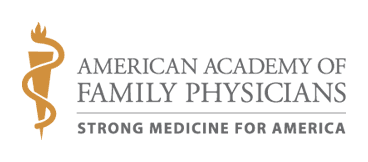Alcohol and drug addiction can create mental and physical problems for you and dysfunctional relationships with your friends and family. The cycle of addiction may go on for years, and it’s difficult to overcome without help. For best, long-term results, you will need professional help from a residential inpatient treatment program.
Alcohol and drug addiction creates many problems in your life. It causes problems in almost every aspect of your lifestyle with work, school, family and friends. Your daily routine is disrupted by impaired thinking and dysfunction behavior due to the mental and physical effects of your addiction. Most addicts end up losing their job, finances, close friends, and even family members who can’t deal with the chaos of drug and alcohol addiction. Although addiction affects everyone differently, one thing is certain. If you don’t get help, you will experience a difficult life and a downward spiral of your once normal life.
Alcohol Addiction
Alcohol addiction is the most common addiction in America. Over 17 million people in the U.S. suffer from alcohol abuse. That’s about one in every 12 people, mostly adults, who are addicted to alcohol. In addition, more than half of these adults have a family history of alcohol dependency or alcoholism, and over seven million children reside in a home where at least one parent has a problem with alcohol. Alcohol addiction certainly disrupts your life, but it can also lead to serious health problems and even death. In the U.S., alcoholism and its related illnesses contribute to about 40 percent of hospital patients being treated, and it’s is the third leading cause of death due to lifestyle related illnesses.
Alcohol abuse and addiction sets up a terrible cycle of intoxication and withdrawal that takes a toll on your mental and physical health. When you’re intoxicated, the elevated alcohol levels in your blood stream have a drastic effect on your behavior. You can experience depression and unstable moods, memory loss, blackouts, slurred speech, and impaired judgment that can lead to risky behavior and dangerous situations including suicide. During the withdrawal cycle that occurs when you stop drinking, you can experience physical symptoms like tremors, sweating, nausea, vomiting, anxiety, insomnia, and even seizures. Withdrawal symptoms can be mild, moderate or severe, but they are certain to disrupt your normal routine and lifestyle.
Alcohol addiction really has nothing to do with what you drink, how long you drink, or even how much you drink. It has more to do with your uncontrollable need and craving for alcohol and the inability to stop drinking. With many addicts, the craving for alcohol is often stronger than the need for food or water.
Drug Addiction
People experiment with drugs for many different reasons. You may try drugs out of curiosity, to follow the pack, to have a good time, or to improve athletic performance. Many people start taking drugs to deal with mental problems like anxiety, depression or stress from work or personal problems. Although drug use doesn’t always lead to addiction, it certainly creates changes in your normal lifestyle. Drug use increases the potential for problems in your life with work, school, home and relationships. Prolonged drug use just increases the risk for more problems, as well as mental and physical changes that often lead to risky behavior and dangerous situations that can result in injury or death.
One of the most common causes of drug addiction is pain relief. Pain relievers have effects on the brain and nervous system that help to reduce or mask pain. Opiates or narcotics, pain relievers made from opium from the poppy plant, offer strong pain relief, but they are very addictive. Morphine and codeine are the two natural products of opium, but there are many synthetic modifications on the market.
* Heroin
* Dilaudid, Vicodin, Lorcet, Lortab (hydromorphone)
* Percodan, Percocet, OxyContin (oxycodone)
* Demerol (pethidine)
* Methadone (crystal meth)
* Duragesic (fentanyl)
If you use these narcotics only to control pain, you are not likely to become addicted. However, opioids provide an intoxicating high when taken orally in high doses or injections, and they are powerful pain relievers used for a variety of anxiety disorders.
Benzodiazepines and barbiturates are also used to relieve pain, but they are not as strong as opioids. All three of these drug classes create a sedating effect that eases or reduced pain, and they all have addictive properties. Over time, abusing any of these types of drugs can lead to tolerance, physical dependence, and drug addiction that will require professional treatment.






























No Comments
Leave a comment Cancel